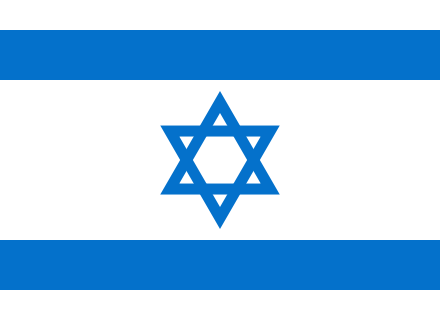Israel rejects call for 48-hour lull in assault on Hamas
 Gaza/Tel Aviv - Israel resisted mounting international calls Wednesday to cease hostilities in the Gaza Strip, with its security cabinet rejecting a French proposal for a
Gaza/Tel Aviv - Israel resisted mounting international calls Wednesday to cease hostilities in the Gaza Strip, with its security cabinet rejecting a French proposal for a
48-hour truce to allow humanitarian aid to flow into the enclave.
Vowing to continue until its goals were achieved and a "durable" solution was found to seven years of rocket and mortar attacks by Palestinian militants from the coastal salient, there was no let up in Israeli airstrikes on the fifth day of the offensive.
The Israel Air force pounded at least 25 Hamas targets Wednesday, including a Gaza City mosque after darkness which Israel said was used by the radical Islamic movement for storing rockets.
Hamas also kept up its attacks against Israel, where more than 70 rockets rained down on its southern towns and cities.
The Hamas leader in Gaza, Ismail Haniya, spoke for the first time from his hiding place in a pre-recorded address, in which he defiantly said Hamas and the people of Gaza "will win" and attempted to raise moral by reading verses from the Koran.
Israel has yet to launch a ground assault in Gaza despite widespread speculation that an incursion was imminent.
Since its Operation "Cast Lead" started shortly after 11 am Saturday, Israel launched at least 450 airstrikes on more than 600 targets in Gaza, while Palestinian militants in turn launched at least 334 rockets into Israel.
Four Israelis were killed by the rockets, while the Palestinian death toll reached the 400 by Wednesday evening.
Some 2,000 were injured, according to Hamas' de-facto health minister, Basam Naim. He warned that some 300 of them were in serious condition and the death tool could quickly rise.
According to a UN relief agency active in Gaza (UNWRA), at least one quarter of the Palestinian casualties are civilians, who live or passed close by the hundreds of Hamas police stations, offices, warehouses, rocket manufacturing workshops and vehicles hit in the densely-populated coastal enclave.
Palestinian President Mahmoud Abbas threatened to suspend peace talks with Israel. Condemning the Israeli offensive as a "heinous" and "horrific crime," he said in a pre-recorded, televised speech marking the 44th anniversary for the founding of his Fatah movement:
"We will not hesitate to suspend (the negotiations) if they become in conflict with our interest, impair our inalienable rights or became a cover for waging aggression."
"You are not alone," Abbas, at bitter odds with Hamas over the militant group's seizing of the Gaza Strip 18 months ago by ousting his Fatah security forces, told the people of Gaza.
The Arab League, meeting in emergency session in Cairo, urged the UN Security Council to take immediate action to stop the Israeli assault on Gaza, with the blocs secretary-general, Amr Mussa, decrying the surging number of Palestinian casualties and charging: "Which 'magic number' is the security council waiting for before it will act to put an end to these attacks?"
Hamas' top leader based in Damascus, Khaled Meshaal, meanwhile was quoted by the Russian Foreign Ministry as saying his movement was willing to accept a truce if Israel completely lifted its economic embargo.
The ministry said that in a telephone conversation with Russian Foreign Minister Sergei Lavrov, Meshaal "voiced readiness to cease armed confrontation, but on condition of the lifting of the blockade of Gaza."
Israel however was unlikely to accept this and risk the entry of new rockets and raw materials, after having dealt what it says is already a heavy blow to Hamas' weapons supply lines and arsenal by bombing smuggling tunnels, warehouses and manufacturing workshops.
US President George W Bush - who telephoned Israeli Prime Minister Ehud Olmert for an update on the fighting - believes the first step of a ceasefire should be an end to Hamas' rocket attacks, Gordon Johndroe, a White House spokesman, said in Crawford, Texas.
Responding to the calls by other world leaders for an immediate end or suspension to hostilities, Olmert said Israel "did not launch the Gaza offensive only to end it while the rocket fire remains unchanged."
"If the right conditions, the kind we feel would guarantee better security realities in the south, will present themselves, we would be willing to consider it, but we're not there yet," he said of the French proposal for a truce.
Earlier, government Spokesman Mark Regev told Deutsche Presse- Agentur dpa that Israel would not suspend its offensive until it had achieved its goals.
"Israel wants a sustainable solution. We don't want a band aid that would explode again in one month," he said. "At this stage we think it is important to continue the pressure on the Hamas military machine."
However, he said Israel would "expand and upgrade humanitarian efforts to support the innocent people of Gaza."
Since the offensive - the deadliest in decades of Israeli-Palestinian fighting - got underway, some 400 trucks with aid have entered through Israel's border crossings with Gaza, with some 100, carrying among others 1,000 units of blood, entering Wednesday.
At least eight imported Russian-type Grad rockets - three of them Wednesday night - have hit the southern Israeli city of Beersheba since late Tuesday, located some 40 kilometres from Gaza.
They marked the deepest Palestinian rocket attacks inside Israel ever and according to Police Spokesman Micky Rosenfeld meant 1 million of Israel's population of 7.3 million were now in the range of fire.
One of them penetrated the roof a high school and landed inside a classroom which was vacant after a last-minute decision late Tuesday to cancel classes in the city of
186,000. (dpa)